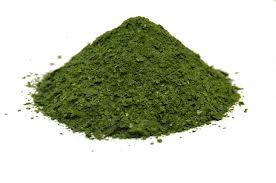 Algae is a generic term used to describe a large and diverse group of sea based organisms which are autotrophic in nature. The most common type of algae is kelp, while blue-green algae remains to most widely consumed form of this sea plant. Blue-green algae provides a high balance of vitamins. It’s high in the antioxidant beta carotene as well as B vitamins. In fact, the only vitamins missing from blue-green algae are vitamins E and D. Another benefit of algae can be traced to its abundance of minerals. Blue-green algae contains minerals in their chelated form. Meaning, the mineral content of algae is attached to a protein molecule, which enhances absorption through the blood.
Algae is a generic term used to describe a large and diverse group of sea based organisms which are autotrophic in nature. The most common type of algae is kelp, while blue-green algae remains to most widely consumed form of this sea plant. Blue-green algae provides a high balance of vitamins. It’s high in the antioxidant beta carotene as well as B vitamins. In fact, the only vitamins missing from blue-green algae are vitamins E and D. Another benefit of algae can be traced to its abundance of minerals. Blue-green algae contains minerals in their chelated form. Meaning, the mineral content of algae is attached to a protein molecule, which enhances absorption through the blood.
Key Nutrients
Algae is high is protein and vitamins A and B1, and contains zinc, iron and calcium. Algae is also a great source of dietary fiber.
Health Benefits
Vitamin B1 – Thiamine is an important vitamin since it breaks down sugars in the body. Thiamine also helps to support nerve and heart health.
Vitamin A – Vitamin A, when converted into retinaldehyde, is a vital compound for healthy eyes. Furthermore, vitamin A is believed to fight against cataracts, macular degeneration and glaucoma. Vitamin A strengthens the membranes of the human body such as mucous membranes, respiratory, urinary and intestinal tracts. It is also essential for the lymphocytes, or white blood cells, that fight infection once in the body.
Iron –Iron, found in red blood cells, is an integral part of hemoglobin. Hemoglobin carries oxygen from the lungs to the cells. Iron is an essential component of many enzymes necessary for various chemical reactions in the body.
Calcium – Calcium is an important mineral for bone and teeth growth and maintenance. It is also an important mineral in terms of cardiovascular function.
Zinc – The health benefits of Zinc include proper functioning of immune system, digestion, control of blood sugar and energy metabolism.
Season
Algae, typically harvested during the summer months, can be found in its dry form in any supermarket or food retail store year round.
Nutrition Information
Per 1 Tablespoon:
Calories (cKal): 20
Protein (grams): 2
Total Fat (grams): 0
Carbohydrates (grams): 2
Fiber (grams): 1
Buying and Storing
When buying algae, make sure you buy it from a reputable supplier or market. Being dried, algae will store in your kitchen for up to one year in a sealed container.
Best Way to Add to Diet
Algae makes a great addition to any salad, soup or stew.
Algae Recipe
Traditional Wakame and Miso Soup

 Not Sure What Healthy Foods To Eat?
Not Sure What Healthy Foods To Eat? This week we take a look at one of my favorite healthy foods...the mighty Avocado.
This week we take a look at one of my favorite healthy foods...the mighty Avocado.
No comments yet.